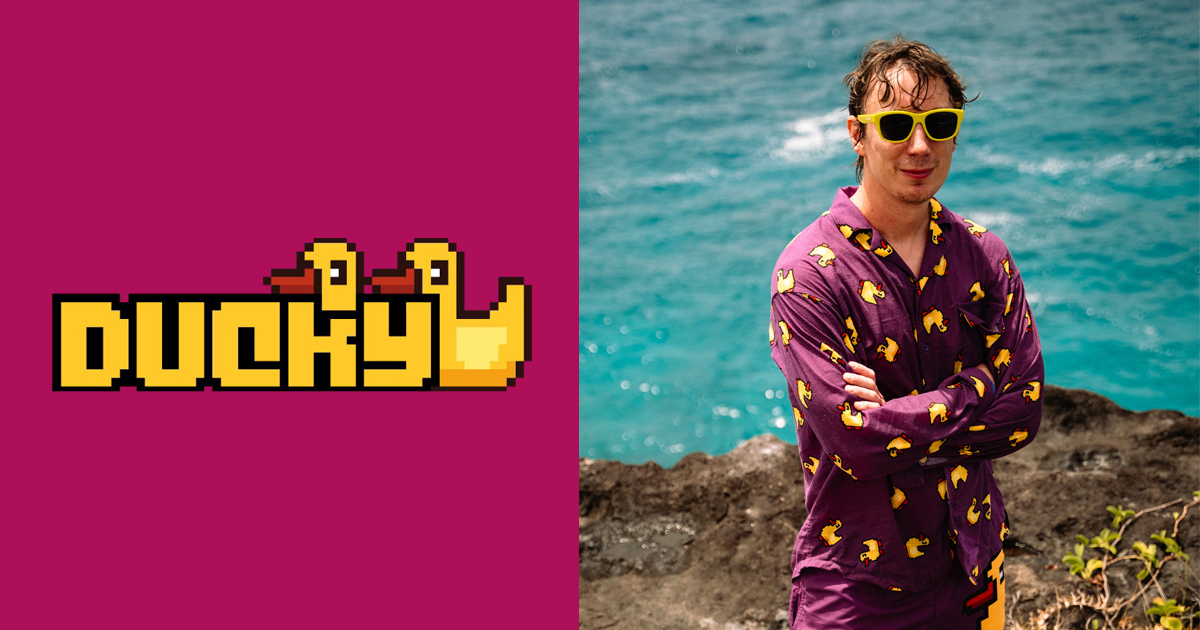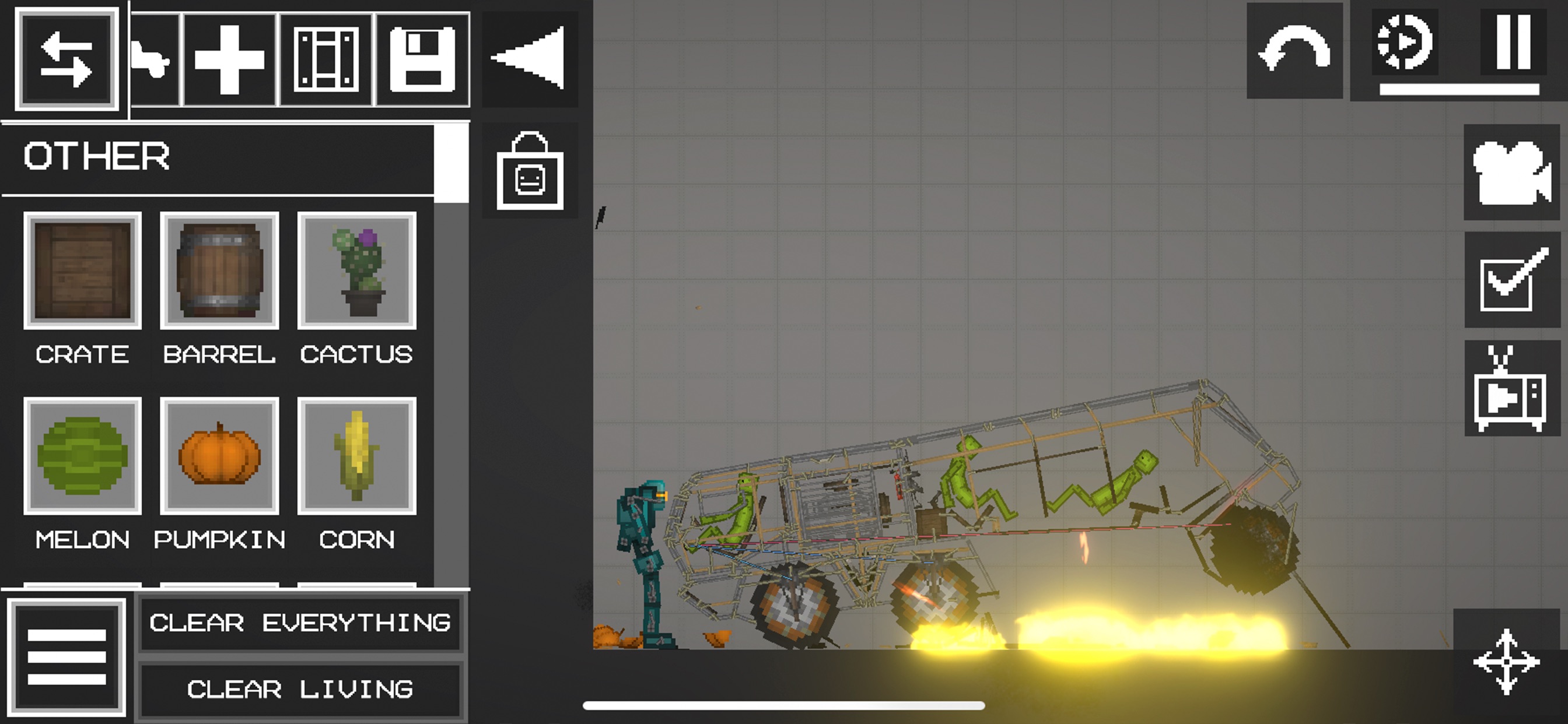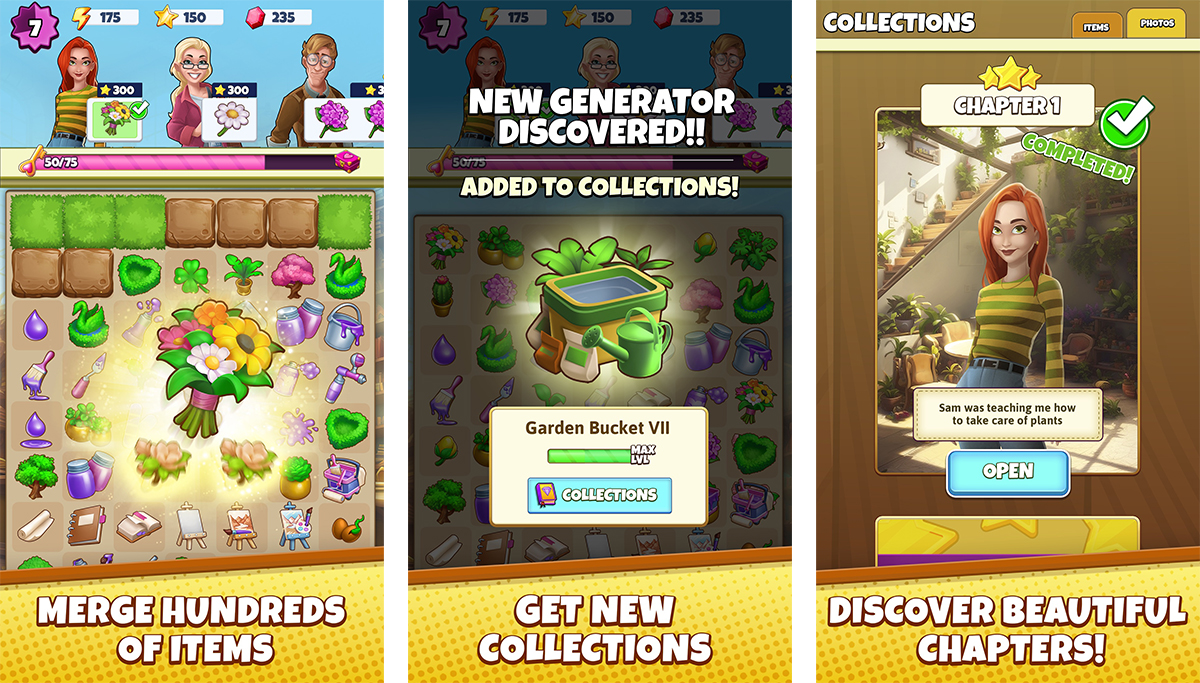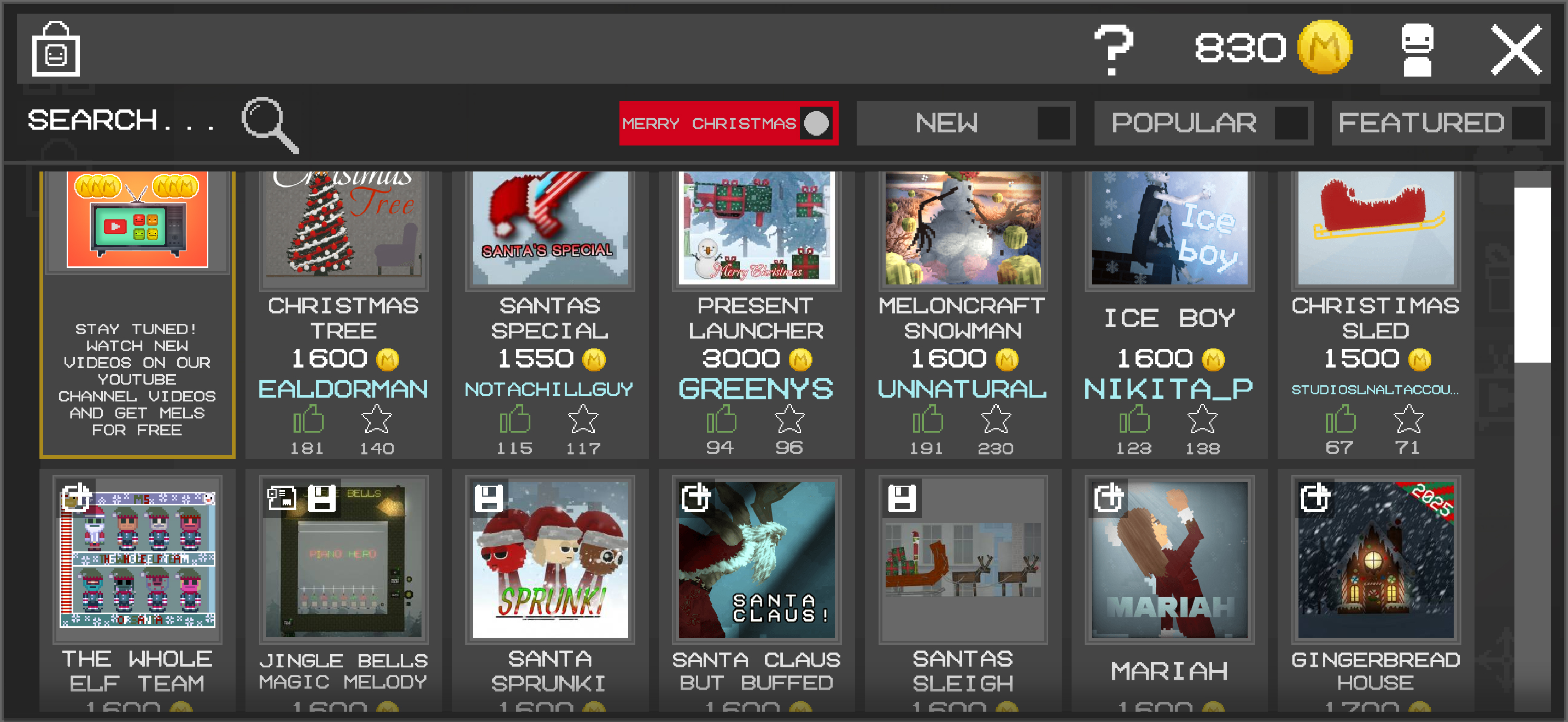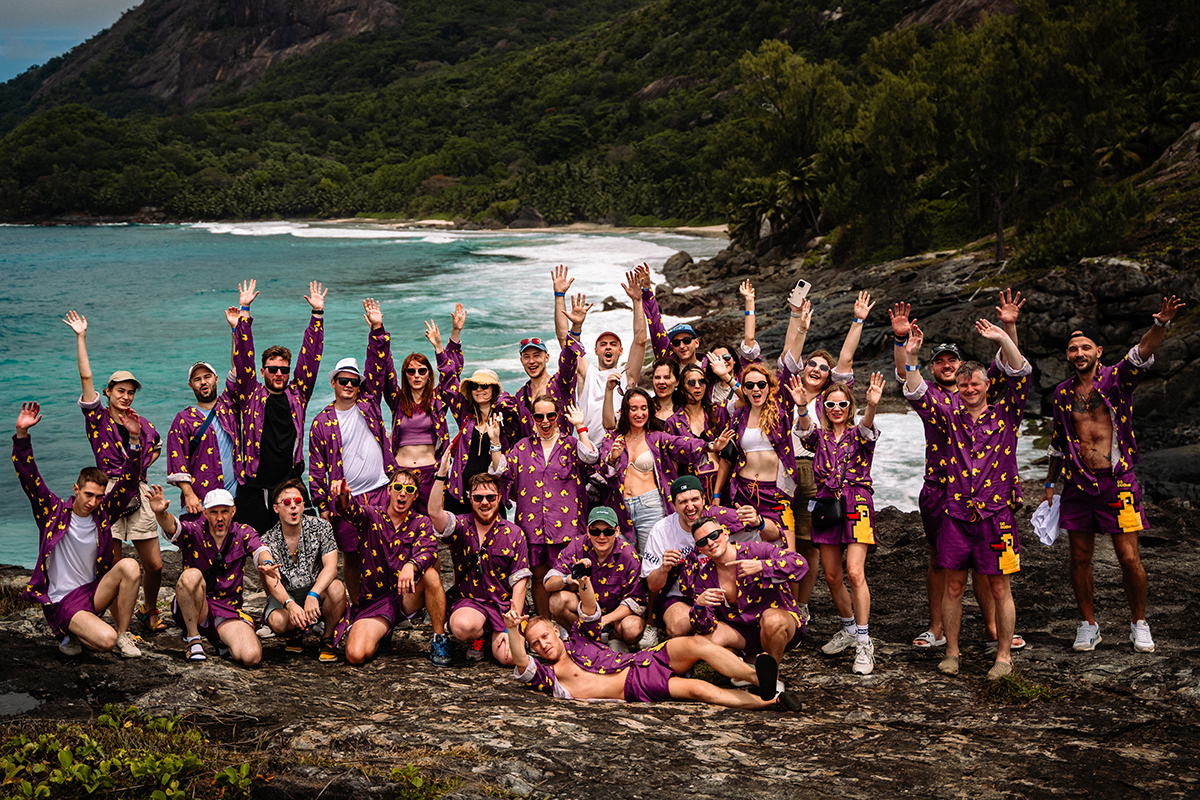We continue to wrap up 2024 with top managers and experts from the gaming industry (and related fields). Next up is an interview with Ivan Fedyanin, co-founder of Playducky.
How was the year for the company? What achievements would you highlight?
Each year for us is like a season of a series, with its own plot and main challenges that the main characters — the ducks — bravely overcome (or epically fail).
If we could describe 2023 with the words "we almost didn't make it, but pivoted towards the sandbox genre and became a growing, profitable company," then 2024 was meant to cement that success. And so it was — sandbox is now our "home" genre. I won't lie with percentages, but if you see someone playing a sandbox game on a mobile phone, statistically, they're probably playing our game.
Related to this, but still a separate achievement, is the development of Melon Sandbox. Over the year, we took a crucial step for the project, transforming it from a game with an audience of 2.7 million DAU into a standalone platform: we enabled players not only to create mods and skins but also launched an in-game store where they can showcase their work. We currently receive about 8,000 submissions a day, and top mod creators earn tens of thousands of dollars a month. Still not hundreds, but the project has the ambition and everything necessary for further growth.
Melon Sandbox
This growth in projects allowed us to strengthen and launch new directions. We are expanding cooperation with more traditionally genre-focused development studios with highly in-app projects: we've managed to soft launch the project Merge Away (by the studio PlayPack, 3 million installs), as well as enter deals with promising projects yet to be launched.
Merge Away
The cherry on top, showcasing once again that speed in decision-making is crucial for success: we were the first to launch a joint event with Hamster Kombat, gaining millions of installs per day for our projects through this collaboration. While this was merely a one-time burst of joy, it provided us with knowledge and understanding of how we want to develop similar collaborations.
Oh, and yes, we have amazing corporate events. We took the team to the Seychelles and couldn't stop there.
Melon Sandbox
How has the market for publishers changed over the year?
I would say the market remains very "tough": the likelihood of making money with a project released in 2024 was lower than with a project from 2023 (and this trend has been ongoing for years).
Every publisher has their strategy, so everyone faces this challenge differently. Some look for promising prototypes, buy them out, and finish developing them in-house. Some just scout the market for tests and then replicate. Some have turned to investments.
On our part, we see an increasing quality gap: whereas there used to be many steps between "well, it doesn't even run" and "55% retention, let's scale," now there are fewer middle options. A team either knows what to do and can execute, or they're almost non-existent. Additionally, the nearly non-existent teams are left without support. Past initiatives (accelerators, contests, etc.) are either completely halted or reserved for "insiders."
Considering this, the behavior of the entire market "chain" is becoming even stricter: without expecting rapid growth, margin improvement is sought in other ways. How do you do this if you're, for example, an ad network or mediation platform?
All this together usually signals the "dawn" of new solutions, platforms, or monetization mechanisms. And I'm not referring to a mass shift to mini-apps, but to an environment conducive to changes.
To wrap up the thought: publishers, even from the gaming industry universe, have ceased to be mere publishers. We're involved in the full cycle. We have to view the situation from two perspectives — developer and publisher.
Has the way of working with developers changed over the year, or have the developers themselves changed?
The odds of making a hit in the segment "main revenue from ads" (either classic game economy or the new trendy Hybrid-casual, which they say attracts investments more easily) have been decreasing annually for the past five years. This logically leads to an increase in quality, processes, and speed among developers. The strongest survive (or those in denial, but we won't count them).
This leads to two outcomes. A developer must know how to make a game in this genre better than the publisher and the producer from that publisher. The developer needs to be heard and understood because they have become a unit of expertise. We never really believed in the power of a producer who logs into a chat, furrows their brows, and says "fix the shape of the square." Now, the flawed nature of this practice is even more apparent.
Thus, collaboration with developers becomes more business-oriented: we help not to just make a project, but to grow the company — with expertise in building teams and processes, with funds in the form of investments. Instead of a failed notion of "lords and serfs," it’s moving towards full-fledged collaboration.
What strengthening or emergence of trends in game publishing do you expect in 2025?
New sources of traffic and monetization will emerge. In fact, they are already appearing. In 2025, they will grow. Along with them, the hitwall that prevents mid-tier projects from reaching success might weaken. This will lead to an improvement in the ecosystem as a whole.
What are the company's plans for the upcoming year?
As always — grab all the trends by the tail and start digging early on January 2. The plans include:
- developing Melon Sandbox into a full-fledged platform where developers can not only create mods but full games, providing their own scripts, levels, and interfaces. We want a fictional schoolkid or student who aspires to join the gaming world to have a choice not only between Roblox and Minecraft but among Roblox, Minecraft, and Melon;
- helping to grow our other teams — both to develop current projects and to find new hits;
- expanding in the IAP direction and launching several new projects alongside the growth of Merge Away;
- continuing to (carefully) invest in teams if we understand the potential benefit our collaboration could offer.
I would love to discuss a couple more directions in which we strongly believe and are actively engaged, but it’s too early. Soon.
Also — we continue to seek developer teams with projects for publishing. Genre doesn't matter. We’d be happy to chat with you 24/7. We will test, look over, and comment on results, and then figure out if there’s common ground.
Happy New Year! QUACK!

